1973
The pennant winning 1973 Mets are regarded as one of the biggest surprises in baseball history, coming back from last place in the standings in August to win the division with an 82-79 record, then the LCS before finally taking defending champion Oakland all the way to Game 7 of the World Series, falling just short of the ultimate prize. But were they really that big of a surprise? Look at the cover of that season’s yearbook which featured all of the members of that team who had previously been selected to all-star teams. Even discounting aging stars Jim Fregosi, whose contract was sold mid-season, and Willie Mays, who was in his final season, there was a lot of talent on that team. It just took them longer than it should have to take off.
In 1973 the dismantling of the 1969 team was continuing with 2 more high profile departures. Gary Gentry was traded as part of the package that brought Felix Millan and George Stone to town. Millan was a big part of the team for 5 seasons, and Mets fans of a certain age still bemoan Yogi Berra’s decision not to start Stone in Game 6 of the WS, instead going with Tom Seaver & Jon Matlack, both on short rest, in the ill-fated Games 6 & 7. The bigger loss was the Tommie Agee trade. If my memory serves correctly, that was the first time young me was really devastated by a trade. It turned out to be the correct decision, as Agee declined rapidly. In fact, 1973 turned out to be his final major league season. But at the time it was a gut punch to a 7 year old kid who understood nothing about aging curves.
But I’m burying the lede here, the most significant roster development for the 1973 Mets was the arrival of The Stork! Every franchise has their cult favorites, players that the fan base fell in love with who meant nothing to fans from outside their city. George Theodore was one such example. At the time it was still rare to see a baseball player that tall, and the fact that he was also so thin and gangly with a bit of a goofy demeanor endeared him to the Shea faithful. He wasn’t much of a player, lasting only 2 seasons in the bigs, but he made a lasting impression in that brief career.
1973 was also the year that followed Yogi Berra’s Hall Of Fame induction, and as you can see he was part of an impressive induction class. A couple of years back Baseball Reference greatly expanded their database of statistics from the Negro Leagues and I’ve spent a lot of time doing deep dives to see just how great many of those legendary players were. Buck Leonard is one player whose numbers really jump off the screen; he certainly appears to be at least a top 10 all-time first baseman, perhaps even top 5.
1973 was a thrilling season, particularly since I was too young to fully appreciate 1969, but I was old enough to appreciate this team’s pennant run. And I haven’t even mentioned that 1973 also featured the major league debut of Ron Hodges. He spent 12, yes 12, years with the Mets so there is plenty of time to cover his history.
SNL Season 6 Recap
The weekly production schedule on SNL has generally been the same since day 1 - on Monday there is a pitch meeting with the host, writers, performers and producers. The writers throw out ideas & if Lorne (or in different years Jean Doumanian or Dick Ebersol) approves all interested parties proceed with the proposed piece. I assume they kept the same process in place during the Doumanian season, which leads to one question - if THIS is the material that was approved, what could the reject pile have possibly looked like?
Episode 7 (we’re past the halfway point!) was hosted by Karen Black. No disrespect intended, she had key roles in such major 1970s classics such as Five Easy Pieces and Nashville, not to mention Trilogy Of Terror, but her star had severely faded by 1981. To her credit, similar to Ray Sharkey the previous week, she did not half-ass anything. She fully committed to the bits, but the show was full of the same old same old that has made season 6 such a rough go.
Once again, nothing really hit. The cold open was set in the final days of the Carter Administration, as the Carter family was trying to take as much from the White House as possibly, even stuff that was nailed down, before the Reagans could move in. The show continued, and failed, to attempt to mine humor from the Rocket Report. This time he convinced a New York cab driver to make a left hand turn from the outer right lane. He had zero rapport with the cabbie, so the bit never took off. And Update continued to look like amateur hour. Charles Rocket and Gail Matthius both stumbled through their scripts multiple times - the only thing worse than bad comedy is bad comedy delivered poorly.
The episode also introduced one of the better known recurring characters for the first time, as Joe Piscopo debuted the Jersey Guy in a sketch with Karen Black that eventually morphed into a takeoff of the famous Five Easy Pieces diner scene. Not much good use of Eddie Murphy this time; his appearances this week devolved too easily into lazily relying on “let’s portray the young black guy as a criminal” stereotypes. His airtime continues to increase, which is promising, and it appears to come at the expense of poor Gilbert Gottfried.
As always, Peacock removed the musical performances. There were 2 musical guests this week - Cheap Trick and Stanley Clarke. Next week’s show is hosted by Robert Hays. Surely they will give him better material to work with.
The Ol’ Alma Mater
It’s been a time introspection for me the past couple of weeks, as I celebrated my birthday recently. The conclusion of my latest trip around the sun coincided with my (year redacted) college reunion at Fordham last weekend. It was a great time seeing so many people, and I’m not just saying that because there were several fellow celebrants who subscribe to this newsletter. There is something a bit unique about a college reunion as opposed to a high school one.
I regularly attend my 5-year high school reunions as well, and it’s equally as great to catch up with old friends there. But the atmosphere of high school visits essentially remain stagnant. You’ll see some renovations here and there, but the physical footprint of the building remains the same. The classrooms, lockers, cafeteria, etc. are all exactly where you remember them to be.
That’s not the same case with a college campus. There’s constant construction or renovation, whether it’s new dorms, libraries, or administrative buildings. Whenever I revisit the campus I feel a bit of momentary discombobulation. I walk a familiar path and suddenly discover a new building that didn’t used to be there. It almost feels like an entirely different place.
Regardless of that sense of odd displacement, it was a spectacular time at my old digging grounds. To my readers that were there, great seeing you all. And while I’m in a self-reflective mode, big personal news last week as one of my nephews and his wife had a daughter last week, making me a grand uncle for the first time. Since that means there is now officially a new generation in my family, that officially moves me up one level into an older generation. That should only result in a minimal impact on the contents of this newsletter. Instead of rewatching old episodes of Saturday Night Live, I’ll need to switch to Murder, She Wrote in its place. (Wow, it was a shock that James Franciscus turned out to be the killer. Who saw that coming?) And my music related posts will focus on Lawrence Welk.
Cynthia Weil 1940-2023
The subgenre commonly known as Brill Building pop provided the world with dozens of the most beloved pop classics of the mid 50s-late 60s. Among the great songwriters of that period was Cynthia Weil, who passed away earlier this week. Along with her husband and collaborator Barry Mann, they have been inducted in both the Songwriters and Rock and Roll Halls Of Fame.
I sometimes take issue with the term Great American Songbook, because many of the compositions of songwriters such as Weil and her peers are just as timeless as those Tin Pan Alley tunes are. Just take a look at this partial list from her portfolio: (she was generally the lyricist and Mann the composer) “We Gotta Get Out Of This Place,” “Kicks,” “Only In America,” “Make Your Own Kind Of Music,” “Walking In the Rain,” “Here You Come Again,” and many many more. More importantly, their success was not limited to that pre-Beatles time period. Weil & Mann were hitmakers well into the 1980s including an Oscar nomination for “Somewhere Out There.”
Of all their songs, the crème de la crème was certainly “You’ve Lost That Lovin’ Feelin’” which has gone down in history as one of the most frequently played songs in radio history. My personal favorite is “On Broadway.” The sense of perpetual hope in her lyrics is perfectly paired with his tune. RIP to a true great.
We’ll Have To Leave It There
I know that one of the internet’s favorite pastimes is to complain about Chuck Todd, so I won’t pile on. One second thought, screw that. Let me join in on the pile on. He has been one of the kings of terminal bothsidesism. His inability to effectively confront serial liars has made him the wrong man to host Meet the Press during this specific era. It was welcome news to hear that later on this summer he will step aside and will be succeeded by Kristen Welker.
Todd’s interviewing technique has long been the subject of considerably mockery. I’m not going to say that he has a regrettable inability to ask a pertinent followup question, but if he had been the one to put Col. Jessup on the stand, the scene would have gone something like this:
“You’re god damned right I ordered the Code Red!”
“We’ll have to leave it there.”
Todd will move on to focus on election analysis for NBC News. That role will probably suit him better; he first made a name for himself years ago as their data guy in the pre-Kornacki era.
Until Next Time
As always, thanks to everyone for reading. See you all again on Wednesday.

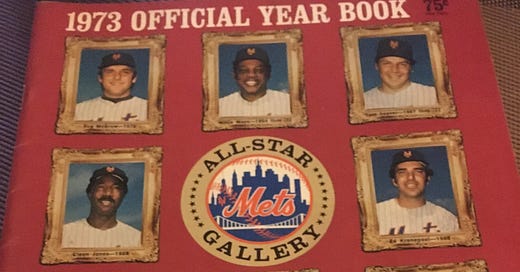



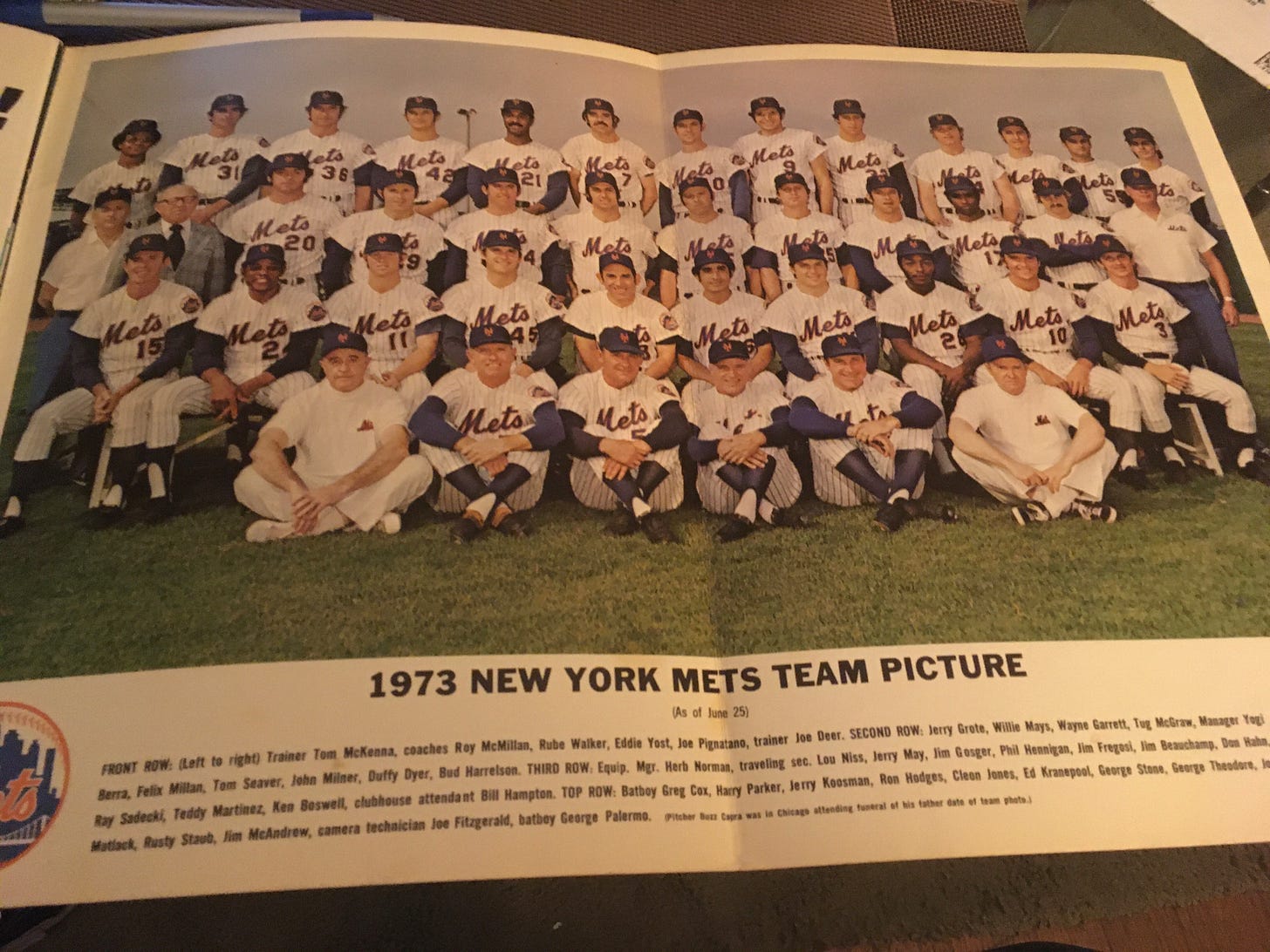
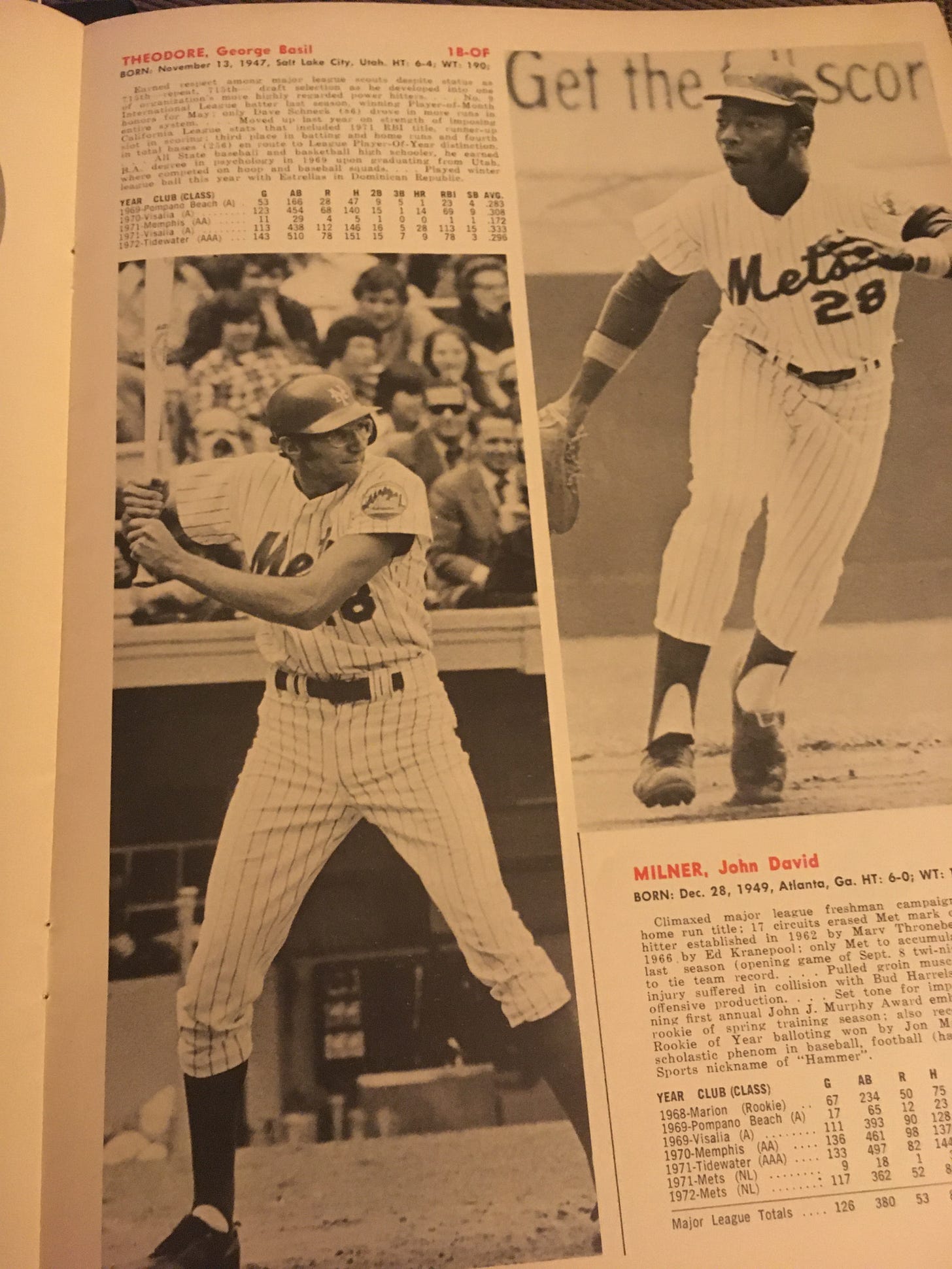
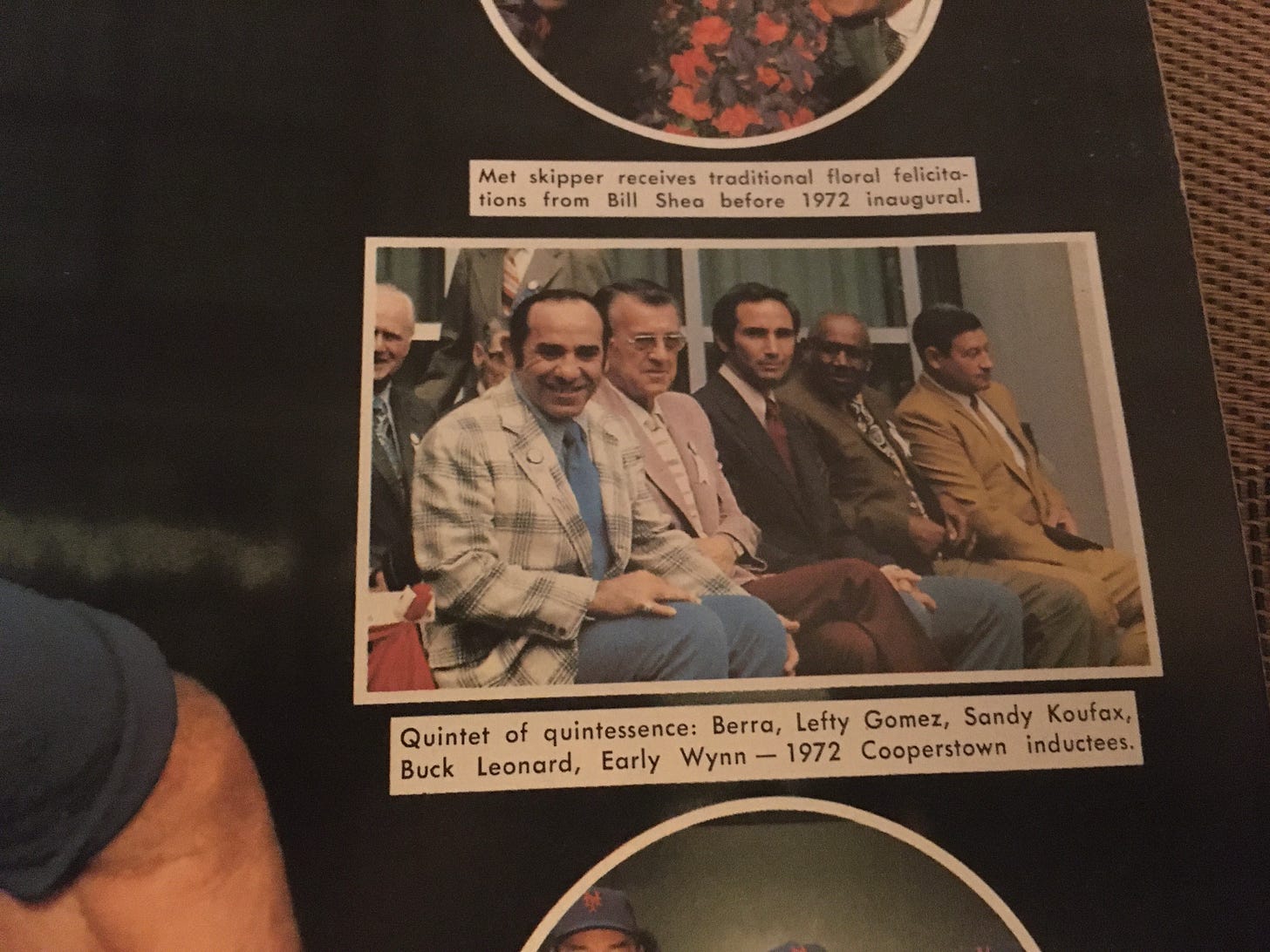
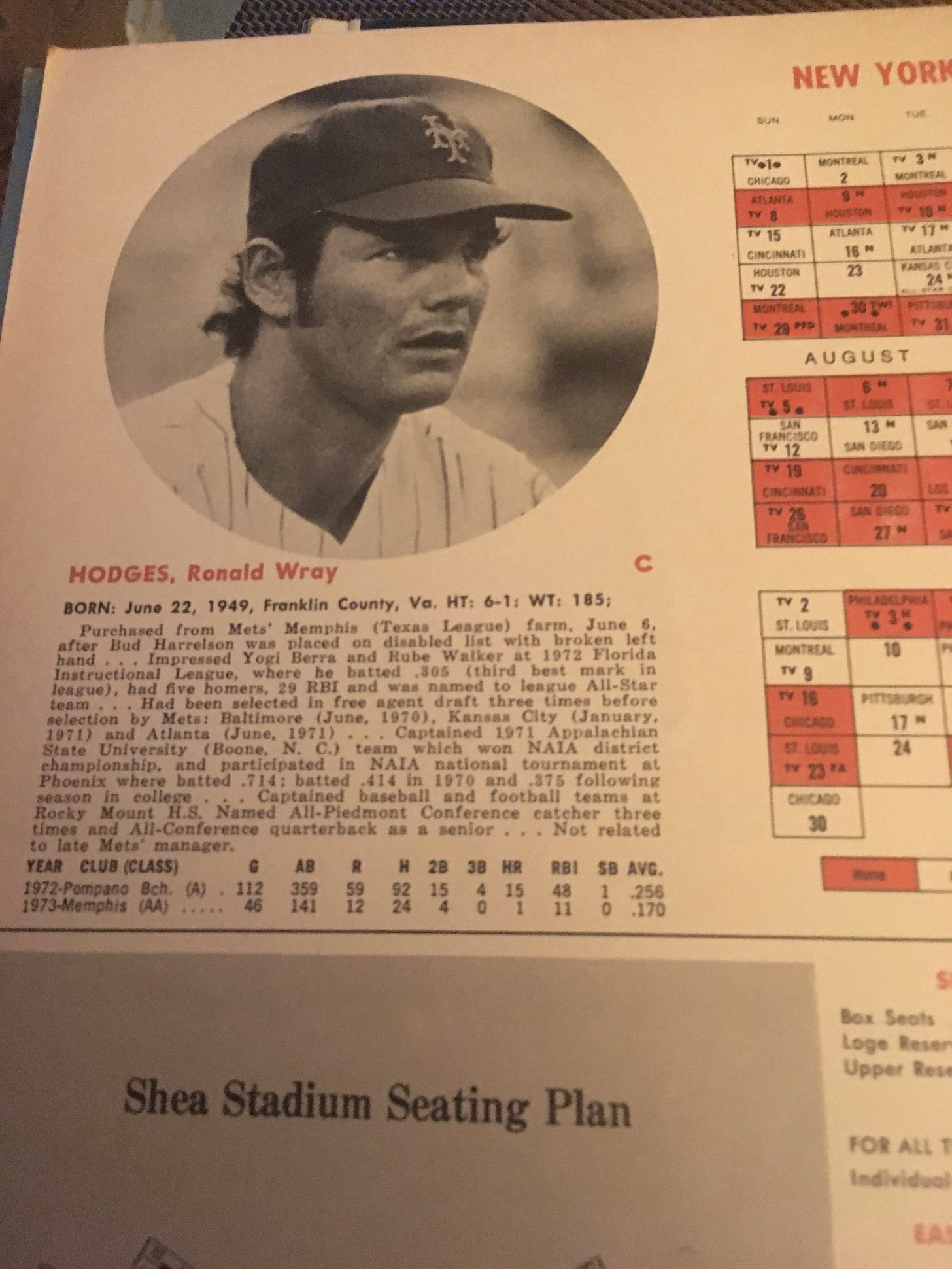
While there may be time to delve into Ron Hodges career, you skipped right over the fact that he was involved in one of their most famous plays during that ‘73 season: the ball off the wall play!!
Maybe you’re saving it for the ‘74 yearbook that pictures him and Richie Zisk at the conclusion of the play?!
There is no place like Rose Hill. It exists as we think we remember it but is ever changing. I am fascinated by the memories of my friends that shed light on my own story and perpectives. Best of all are the conversations of my peers who have walked their own paths. The collective wisdom from our lives' experiences connects us powerfully.